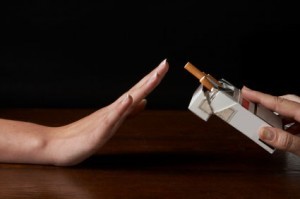In cities and states across the nation, lawmakers are using excise taxes on popular consumer products to raise funds to pay for their pet spending projects.
Instead of using them as “health taxes,” lawmakers are exploiting sin taxes as “stealth taxes” to boost government revenue through a divide-and-conquer strategy, hitting small groups of people who cannot effectively fight back.
In Chicago, for example, city Alderman Proco Moreno is adding a $1.25 flat sin tax on e-cigarette cartridges and a 25-cent-per-milliliter tax on e-cigarette liquid. Moreno says the purpose of the taxes is to stop Big Tobacco from “going at our youth in a different way, through technology, and through vaping and e-cigarettes.”
“Chicago is leading the nation when it comes to reducing tobacco use,” Mayor Rahm Emanuel said at an Aug. 17 press conference.
If reducing tobacco use is the city’s goal, why is the city discouraging harm reduction tools, such as e-cigarettes, by making them more expensive? This is especially foolish in the case of e-cigarettes, which is a harm-reduction tool that doesn’t contain tobacco.
The disconnect between Chicago lawmakers’ actions and words suggests public health is not the motivation for Moreno’s e-cigarette tax. If improving public health is the true goal, lawmakers would be encouraging people to use e-cigarettes, which are free of the toxic chemical by-products of tobacco and have shown to help many people quit smoking.
A similar situation is playing out in California. Lawmakers say adding $2 to the price of a pack of cigarettes will improve public health, but the facts don’t support the claims, and the facts will be the same when the Legislature reconvenes in January, possibly to revive the push for more taxes.
The sponsor of the tax hike, state Sen. Richard Pan, D-Sacramento, told attendees at an Aug. 26 pro-tax rally, “We know raising the tobacco tax has been proven to prevent and reduce smoking, especially among young people.”
What he claims to know, in this case, is dead wrong. In 2008, McMaster University economics professor Phillip DeCicca and a team of international economists studied data from the U.S. Census Bureau and the U.S. Department of Education to determine whether sin taxes discourage young people from smoking tobacco. They don’t.
After modeling and accounting for social influences, DeCicca’s team concluded, “The price of cigarettes has a weak and statistically insignificant influence on smoking participation (among youth).”
If underage smoking rates aren’t affected by sin taxes, what’s the point of a new tax? California lawmakers were planning to increase health care entitlement spending, and spending hikes have to be covered by some kind of revenue increase.
From California to Chicago and everywhere else, lawmakers, and the voters electing them, should judge alleged health-enhancing taxes on the outcomes of such programs, not on the stated goals, no matter how noble those programs may sound.


